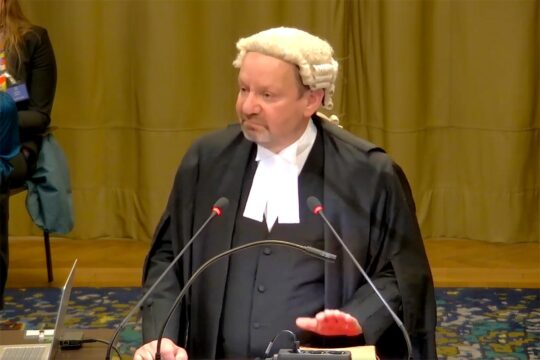The first witness began testifying Tuesday in the trial of former Congolese rebel Bosco Ntaganda, who stands accused before the International Criminal Court on 18 counts of war crimes and crimes against humanity.
Concealed from the public at The Hague based court and referred to only as "Mr Witness," the man spoke slowly in his native Kiswahili clearly at times fearful of revealing anything that could give away his identity.
He told how at the end of 2002 the rebels of the Union of Congolese Patriots (UPC) party had come to "wage war" in his village of Mongbwalu in the northeastern Ituri region of the Democratic Republic of the Congo.
Ntaganda has been charged with ordering hundreds of deaths in savage ethnic attacks from 2002-2003 by his rebel Patriotic Forces for the Liberation of Congo (FPLC), which were then the armed wing of UPC.
The eastern Democratic Republic of Congo has been mired for two decades in ethnically-charged wars, as rebels battle for control of its rich mineral resources.
The unrest spiralled to encompass armies from at least six African nations, claiming an estimated three million lives in one of the world's most deadly recent conflicts.
Ntaganda has denied 13 counts of war crimes and five charges of crimes against humanity.
But prosecutors say the feared rebel commander played a central role in the Ituri conflict which rights groups believe alone left some 60,000 dead since 1999.
At the start of his trial before the ICC earlier this month, Ntaganda, 41, rejected his nickname of "The Terminator".
"That is not me. I am a soldier," Ntaganda said, speaking publicly for the first time since he turned himself in to the ICC in 2013 by walking into the US embassy in Kigali without warning after years on the run.
"Mr Witness" -- whose picture was pixellated on the court broadcast and whose voice was heavily distorted to disguise his identity -- told the ICC he had been trading goods in the nearby community of Yedi when the rebels arrived in Mongbwalu.
"I saw people who were fleeing and going towards Yedi," the man, who said he was now a farmer, told the three-judge panel.
He added he could also hear the "bullets and the noise of heavy weapons."
The prosecution meanwhile Tuesday protested that Ntaganda had tried to send a message to one of the 70 witnesses who will appear during the trial directly through his defence team.


